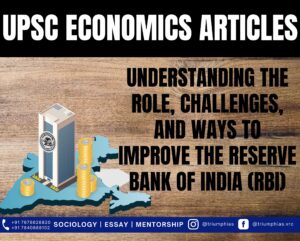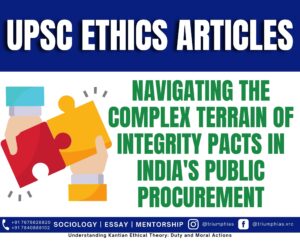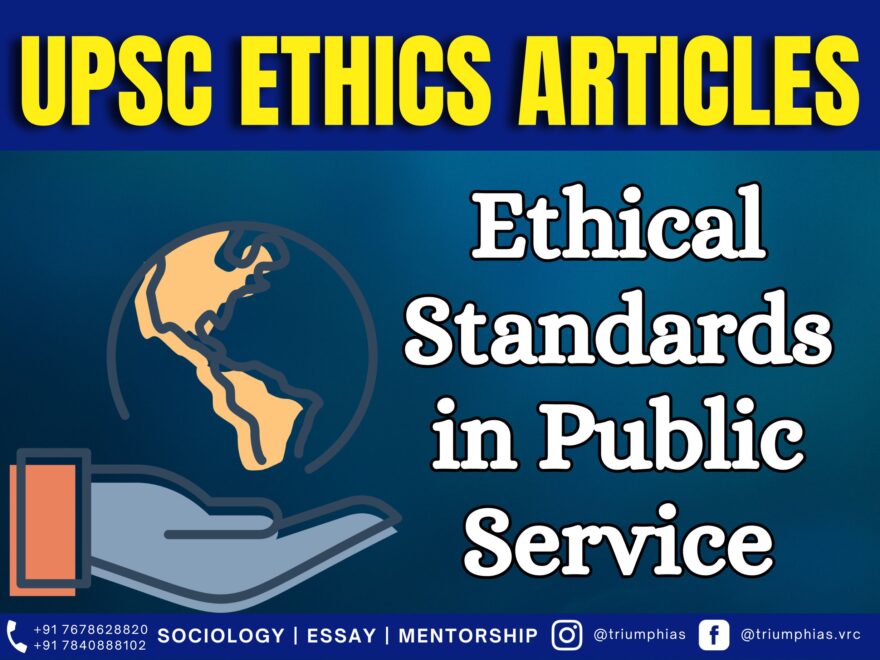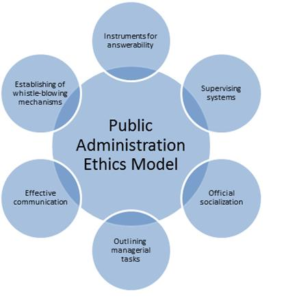Ethical Standards in Public Service
[Relevant for Public Administration (Ethics, Integrity and Aptitude)]
Ethical Standards in Public Service
Public service constitutes the foundation of any democratic nation, and the observance of ethical behaviour is paramount for the efficiency and trustworthiness of public service provision. Ethical guidelines guarantee that public servants operate in the public’s utmost interest, maintaining transparency, accountability, and integrity in their actions. Nevertheless, preserving ethical norms within public service presents a formidable challenge, particularly in developing nations like India, where corruption and political influence prevail.
Philosophical Basis of governance and public service delivery
- Indian scriptures such as the Mahabharata, Ramayana, Arthashastra, Kural, Kadambari, and Hitopadesha contain abundant philosophical wisdom to uphold ethical standards.
- Chinese philosophers like Confucius and Lao Tse have also imparted ethical governance principles.
- In Western philosophy, three prominent ethical schools include:
-
- Aristotle, who emphasizes that virtues like justice and generosity benefit both the possessor of these virtues and the society they belong to.
- Immanuel Kant, who places duty at the core of morality, asserting that knowledge of one’s duty leads to mutual respect.
- Utilitarianism, which advocates for actions that maximize the overall happiness of the greatest number of people.
- Max Weber emphasizes the need for a clear demarcation between office property and personal property in public service.
- The World Bank’s notion of Good Governance underscores the ethical and moral conduct of administrators.
Challenges of Upholding Ethical Standards in Public Service
- Political Interference: Political interference stands as a significant obstacle to maintaining ethical norms in public service throughout India. Frequently, political leaders meddle with the operations of public institutions, including the bureaucracy, judiciary, and law enforcement agencies, often driven by personal or political motivations. This interference compromises the independence and impartiality of public officials, corroding the public’s trust in these institutions.
For example, during the 2011 Commonwealth Games scandal, political leaders allegedly manipulated contract allocations and inflated costs, resulting in substantial public fund losses. This scandal vividly illustrated the detrimental effects of political interference on ethical behavior within public service.
- Corruption: Corruption represents yet another formidable challenge in upholding ethical standards within Indian public service. Corruption manifests when public officials exploit their positions for personal gain or engage in unethical practices such as bribery, nepotism, and favoritism. India grapples with pervasive corruption, significantly impacting the delivery of public services, especially in sectors like healthcare, education, and law enforcement.
For example, the 2019 Vyapam scam saw public officials allegedly accepting bribes to admit candidates to medical colleges, undermining the integrity of the merit-based admission process. This scandal underscored the corrosive influence of corruption on ethical conduct in public service.
- Lack of Accountability: A deficiency in accountability presents yet another challenge in upholding ethical standards within Indian public service. Public officials frequently act with impunity, secure in the knowledge that they are unlikely to face consequences for their actions. This absence of accountability erodes public faith in public institutions and obstructs the effective enforcement of ethical standards. Take,
For example, the 2014 Nirbhaya gangrape case, where public officials faced criticism for their delayed response and inadequate preventive measures against sexual violence. This case starkly demonstrated the detrimental effects of a lack of accountability on ethical behavior in public service.
- Inadequate Training and Awareness Programs: Insufficient training and awareness initiatives pose an additional hurdle in maintaining ethical standards within Indian public service. Public officials often lack the requisite knowledge and competencies to effectively implement ethical standards. Furthermore, they may remain unaware of the significance of ethical conduct or the repercussions of unethical behavior.
For example, in the 2013 Saradha chit fund scam, public officials purportedly failed to detect fraudulent activities within the chit fund company, resulting in substantial public fund losses. This scandal highlighted the adverse consequences of inadequate training and awareness programs on ethical conduct in public service.
In India, numerous obstacles impede the successful enforcement of ethical norms within the realm of public service. These obstacles encompass political intervention, corrupt practices, a deficit of accountability, and insufficiencies in training initiatives.
To surmount these hurdles, fostering a culture rooted in ethical behavior becomes imperative. Additionally, it is essential to rigorously uphold existing laws and regulations while simultaneously augmenting transparency and civic involvement. Bolstering institutional autonomy, refining mechanisms of accountability, and implementing comprehensive training and awareness initiatives for public servants are equally indispensable. These measures collectively serve to bolster the legitimacy and efficiency of public service provision, thereby advancing the cause of sustainable development.
Frequently Asked Questions:
- Question: What are the key challenges in upholding ethical standards within public service in developing nations like India?
Answer: The challenges include political interference, corruption, lack of accountability, and inadequate training and awareness programs.
2. Question: How can the philosophical basis of governance contribute to the promotion of ethical standards in public service?
Answer: Philosophical principles from various traditions emphasize virtues, duty, and maximizing overall happiness, which can inform ethical behavior in public service.
3. Question: Discuss the role of political interference in compromising ethical behavior within Indian public service.
Answer: Political interference often leads to a lack of independence and impartiality among public officials, eroding trust in public institutions.
4. Question: What measures can be taken to address corruption and its corrosive impact on ethical conduct in public service?
Answer: Measures may include stronger anti-corruption laws, transparent processes, and stringent enforcement.
5. Question: How does a culture rooted in ethical behavior contribute to the legitimacy and efficiency of public service provision?
Answer: Ethical behavior fosters trust and accountability, enhancing the effectiveness of public service delivery.
(Reference: Static portion)
Related Blogs …
 |
 |
To master these intricacies and fare well in the Sociology Optional Syllabus, aspiring sociologists might benefit from guidance by the Best Sociology Optional Teacher and participation in the Best Sociology Optional Coaching. These avenues provide comprehensive assistance, ensuring a solid understanding of sociology’s diverse methodologies and techniques.
Ethical standards, public service, political interference, corruption, accountability, transparency, governance, challenges, solutions, philosophical basis, World Bank, Max Weber, sustainable development

Choose The Best Sociology Optional Teacher for IAS Preparation?
At the beginning of the journey for Civil Services Examination preparation, many students face a pivotal decision – selecting their optional subject. Questions such as “which optional subject is the best?” and “which optional subject is the most scoring?” frequently come to mind. Choosing the right optional subject, like choosing the best sociology optional teacher, is a subjective yet vital step that requires a thoughtful decision based on facts. A misstep in this crucial decision can indeed prove disastrous.
Ever since the exam pattern was revamped in 2013, the UPSC has eliminated the need for a second optional subject. Now, candidates have to choose only one optional subject for the UPSC Mains, which has two papers of 250 marks each. One of the compelling choices for many has been the sociology optional. However, it’s strongly advised to decide on your optional subject for mains well ahead of time to get sufficient time to complete the syllabus. After all, most students score similarly in General Studies Papers; it’s the score in the optional subject & essay that contributes significantly to the final selection.
“A sound strategy does not rely solely on the popular
Opinion of toppers or famous YouTubers cum teachers.”
It requires understanding one’s ability, interest, and the relevance of the subject, not just for the exam but also for life in general. Hence, when selecting the best sociology teacher, one must consider the usefulness of sociology optional coaching in General Studies, Essay, and Personality Test.
The choice of the optional subject should be based on objective criteria, such as the nature, scope, and size of the syllabus, uniformity and stability in the question pattern, relevance of the syllabic content in daily life in society, and the availability of study material and guidance. For example, choosing the best sociology optional coaching can ensure access to top-quality study materials and experienced teachers. Always remember, the approach of the UPSC optional subject differs from your academic studies of subjects. Therefore, before settling for sociology optional, you need to analyze the syllabus, previous years’ pattern, subject requirements (be it ideal, visionary, numerical, conceptual theoretical), and your comfort level with the subject.
This decision marks a critical point in your UPSC – CSE journey, potentially determining your success in a career in IAS/Civil Services. Therefore, it’s crucial to choose wisely, whether it’s the optional subject or the best sociology optional teacher. Always base your decision on accurate facts, and never let your emotional biases guide your choices. After all, the search for the best sociology optional coaching is about finding the perfect fit for your unique academic needs and aspirations.
To master these intricacies and fare well in the Sociology Optional Syllabus, aspiring sociologists might benefit from guidance by the Best Sociology Optional Teacher and participation in the Best Sociology Optional Coaching. These avenues provide comprehensive assistance, ensuring a solid understanding of sociology’s diverse methodologies and techniques. Sociology, Social theory, Best Sociology Optional Teacher, Best Sociology Optional Coaching, Sociology Optional Syllabus.
Best Sociology Optional Teacher, Sociology Syllabus, Sociology Optional, Sociology Optional Coaching, Best Sociology Optional Coaching, Best Sociology Teacher, Sociology Course, Sociology Teacher, Sociology Foundation, Sociology Foundation Course, Sociology Optional UPSC, Sociology for IAS,
Follow us :
🔎 https://www.instagram.com/triumphias
🔎https://www.youtube.com/c/TriumphIAS
https://t.me/VikashRanjanSociology
Find More Blogs
|
Scope of the subject and comparison with other social sciences |
|||
|
|
|
|
Modernity and social changes in Europe |




One comment